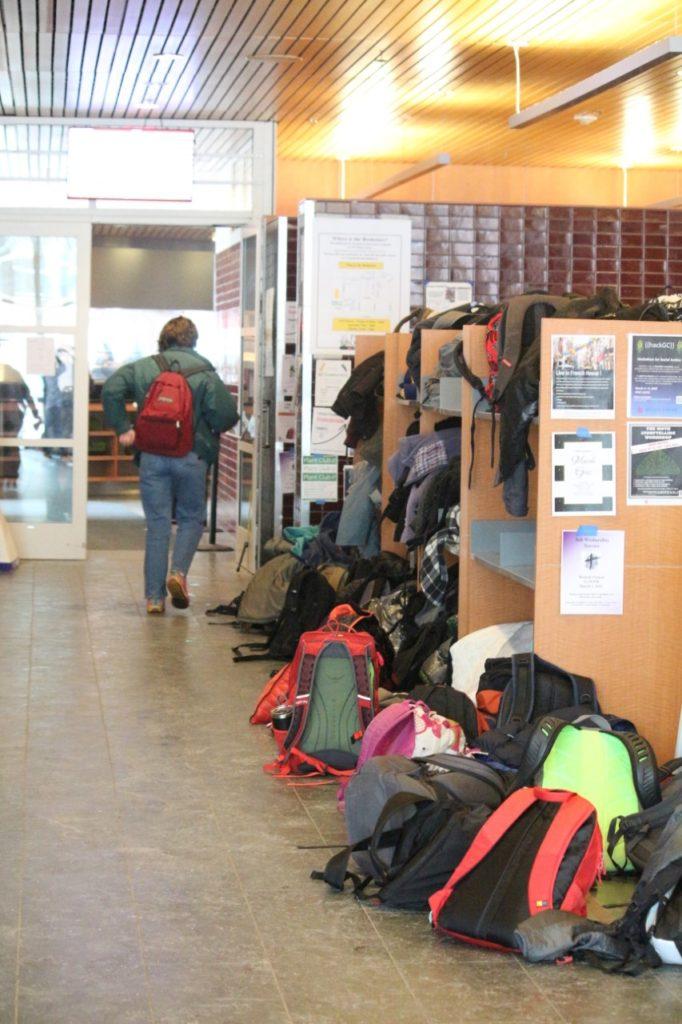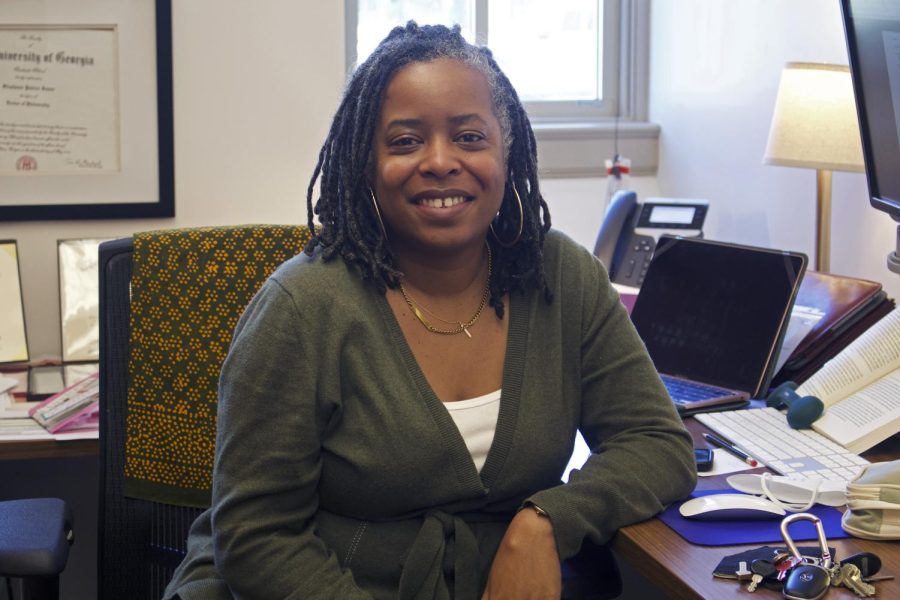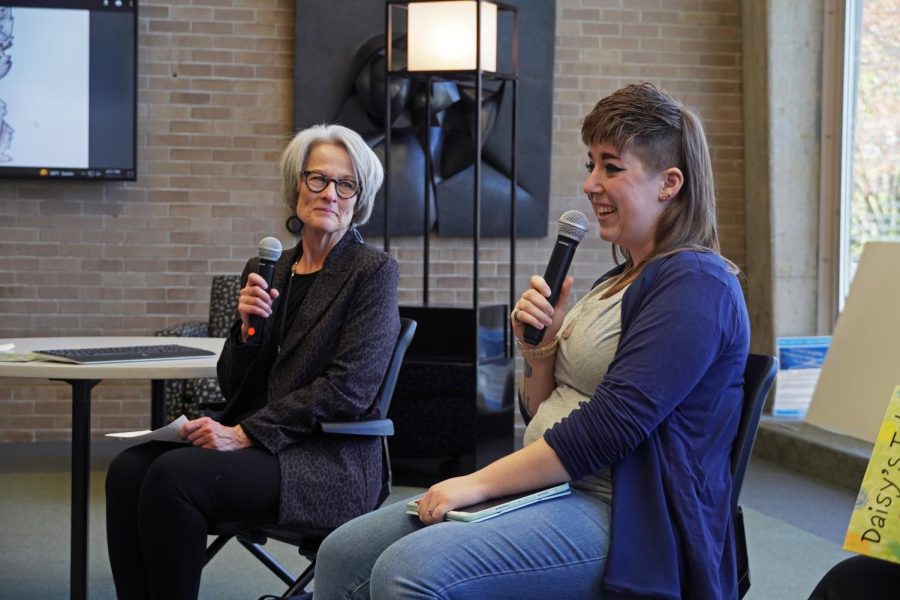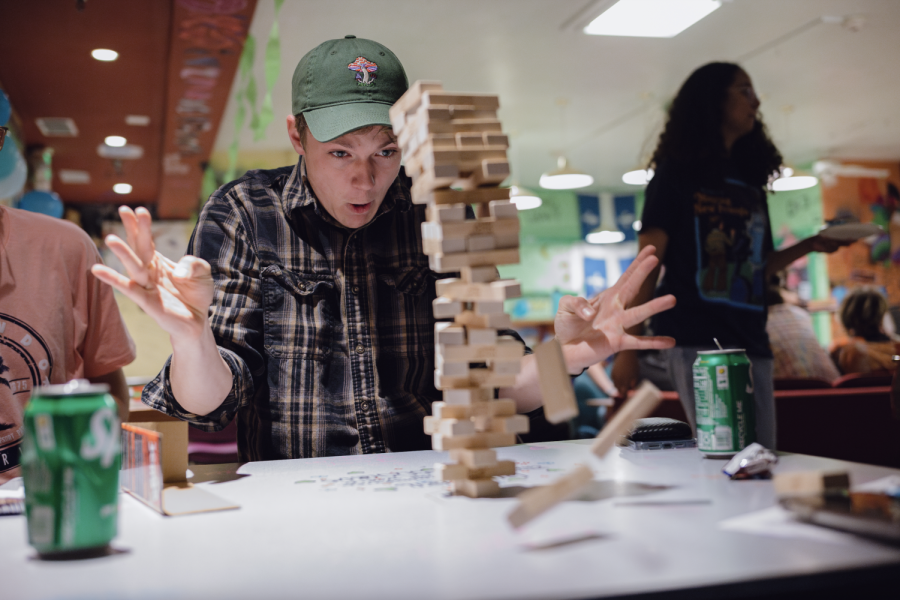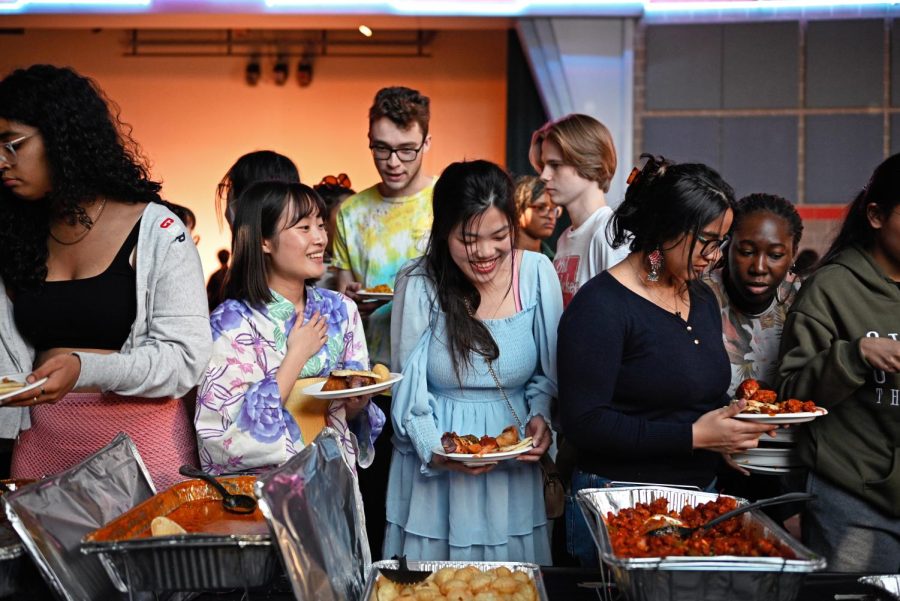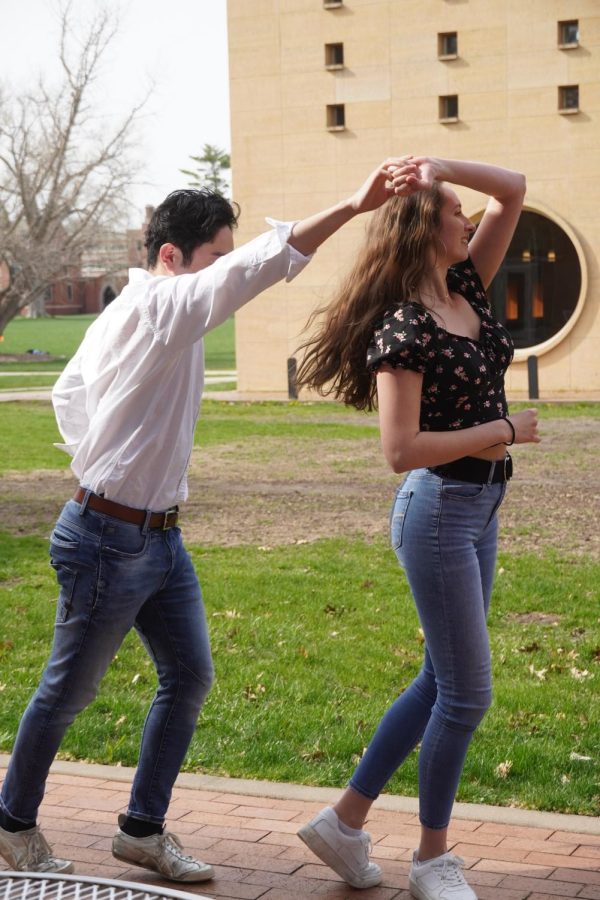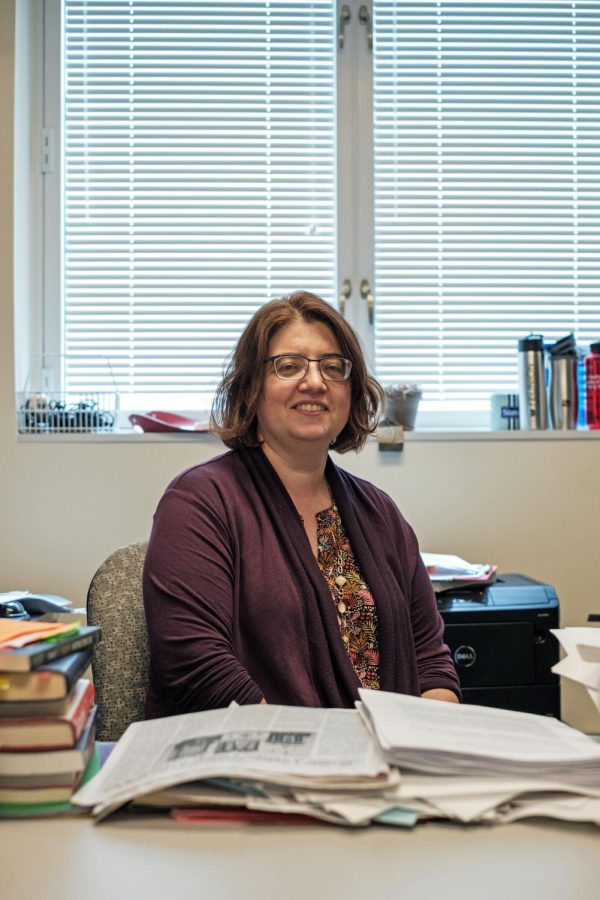It is the surest sign of lunchtime at Grinnell: the storage shelves outside the Dining Hall overflowing with backpacks, coats and personal belongings. As more students arrive, items are left behind on the floor surrounding the shelves, encroaching into the walkways.
The chaos creates more than a mild nuisance to contend with on the way to a meal. As a recent Instagram post from @accessgrinnell, the social media account for Grinnell College Disability Resources, explained, the backpacks are an accessibility problem. Piles of backpacks create a cluttered and unpredictable environment that can make it challenging for people with visual impairments or mobility aids like crutches, wheelchairs, canes or scooters to safely navigate the space.
Assistant Dean for Disability Resources Autumn Wilke has been working on developing solutions for this issue since 2015, when she brought it to the community’s attention through a Letter to the Editor during Disability Cultures Week.
Over time, more storage options have been installed in the queueing area outside of the Dining Hall, such as metal shelving units and a skateboard storage rack. Student employees with the Disability Resources office have also periodically taped off a perimeter around the shelves that expands storage space while keeping the area organized.
However, backpack overflow has continued to be an accessibility problem throughout the 2021-2022 school year, especially in the 11:50 a.m – 1 p.m. meal window, when backpacks spill out the furthest.
“I think it’s been exacerbated [this year] because [not only] are there more students who haven’t been on campus before, there are also more students on campus, and therefore more backpacks,” said Wilke. “It’s not anyone’s fault that there’s not enough room for their backpack.”
Given this challenge, Wilke and student access leaders who work in the Office of Disability resources have adopted a campaign focused on educating the community about the issue and potential solutions. Through informational tabling and social media posts, the group is working to educate students about the importance of being intentional about where they leave their bags, in addition to the various storage locations that often have extra space during mealtimes.
Student access leader Ellie Seehorn `25 noted that despite the existence of taped-off storage areas by the JRC windows, these spaces are “not well utilized.” The gap between such available spaces and their actual usage is part of the challenge that the student access team is currently working to remedy.
It’s not anyone’s fault that there’s not enough room for their backpack. – Autumn Wilke, Assistant Dean for Disability Resources
Wilke noted that students have the chance to make an impact on the accessibility of the JRC at both the individual and the community level. “It’s a domino effect.” said Wilke. “Once one person has put [their backpack] down on the floor, everybody will just continue to do that because they assume that there are no open spaces [on the shelves].”
Students can help prevent this by checking for a spot on the shelves before placing a bag on the floor, and by maximizing the number of bags that can fit in space by placing their backpacks vertically on the shelf. If there is no room for a bag on the shelves, Seehorn shared that the cubbies and lockers immediately behind the metal shelving units are an under-utilized space that students can use to keep their belongings.
When the shelving and locker zones are at capacity, Seehorn recommends “looking toward a window or a wall.” Student access leaders have taped off areas where one can store their personal items while still leaving “the maximum amount of walkway unobstructed.”
In addition to personal actions, collaboration between students will be key for keeping the space clear. Students “reminding each other” about the storage areas, or “helping each other” by pointing out open spots will help keep the entire area more organized, and thereby more accessible. The rush into the dining hall can be overwhelming, said Wilke, especially given students’ short lunch breaks. She believes that people helping each other will be key to making the space accessible for all.


















































